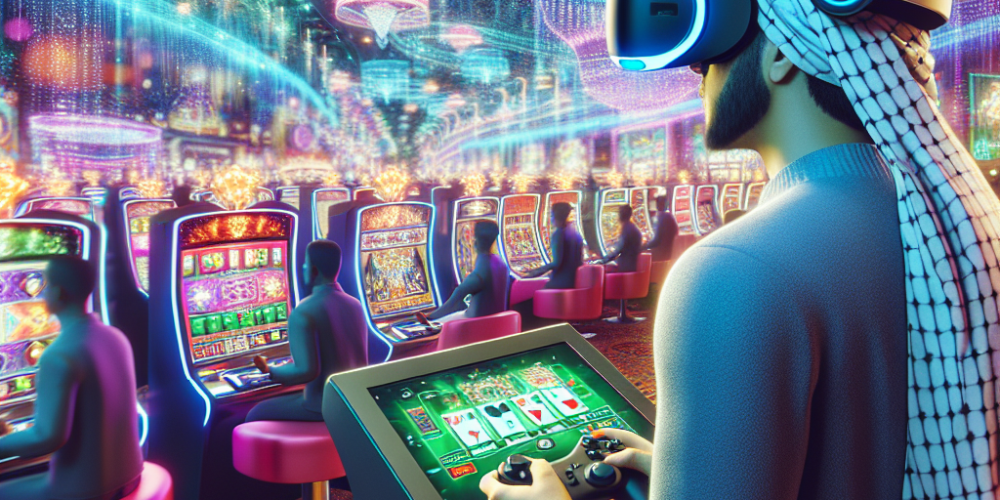In recent years, the gaming industry has witnessed a transformative shift with the integration of virtual reality (VR) technologies, significantly impacting various sectors, including online gambling. A particularly intriguing development is the advent of virtual reality casinos on popular gaming consoles like Xbox and PlayStation. This fusion of advanced gaming platforms and immersive casino experiences represents a thrilling advancement for both gamers and gamblers.
Virtual Reality Casinos: A New Frontier in Gaming
The concept of virtual reality casinos is to replicate the stimulating atmosphere of a physical casino, enabling players to interact with a realistic gaming environment from the comfort of their homes. This is achieved through VR headsets and compatible gaming consoles, which together provide an immersive experience where players can walk around virtual casino floors, interact with other players, and engage in games like blackjack, poker, and slots.
Sony’s PlayStation VR and Microsoft’s Xbox, with its potential VR integrations, are at the forefront of bringing these experiences to a broad audience. The PlayStation VR, in particular, has already seen successes with VR titles, and its application in virtual gambling is becoming a promising horizon.
The Benefits of VR Casinos on Consoles
One of the primary advantages of VR casinos on gaming consoles is accessibility. Players who already own these consoles don’t need to invest in expensive PC setups that were traditionally necessary for high-end VR gaming. This accessibility broadens the potential market for VR casino operators and opens up new entertainment avenues for users.
Moreover, the social component of VR casinos mimics one of the most appealing aspects of casino visits — the social interaction. VR allows players to socialize with others in real-time, enhancing user engagement and delivering a more enriching experience than traditional online casinos.
Potential and Challenges
The potential for VR casinos in the gaming industry is substantial. It offers a way to merge two large entertainment fields: video gaming and gambling. By integrating these, companies can tap into both audiences, potentially increasing user bases and generating new revenue streams.
However, several challenges remain. The technology for VR is still in its infancy and can be cost-prohibitive. While the cost of VR headsets and gaming consoles is decreasing, the total expense remains significant for the average consumer. Moreover, developers must ensure that the VR casino games are not only technologically advanced but also secure and fair, to maintain the integrity of gambling activities.
Regulatory Hurdles and Future Outlook
Navigating the regulatory landscapes is another significant hurdle for VR casinos on consoles. Gambling laws vary significantly between jurisdictions, and the legal complexities of online gambling are magnified in a VR space that can be accessed globally. Operators and developers must work closely with regulatory bodies to ensure compliance and protect consumers.
Despite these challenges, the future of VR casinos on gaming consoles looks promising. As technology advances and becomes more affordable, and as legal frameworks adapt to new forms of digital gambling, we can expect to see more refined offerings in the market.
Conclusion
The emergence of virtual reality casinos on gaming consoles like the Xbox and PlayStation is an exciting development in the intersection of gambling and video gaming. This integration not only broadens the scope of what gaming consoles can offer but also introduces a novel and immersive way for players to experience gambling. As the technology evolves and becomes more ingrained in the everyday lives of consumers, it is poised to revolutionize both the gaming and gambling industries, offering unprecedented interactive experiences that were once the stuff of science fiction. As we look forward to the future, the fusion of VR and gaming consoles will undoubtedly play a pivotal role in shaping the next generation of entertainment.

Karine Gomez is an enthusiastic writer and avid gamer with a particular love for PlayStation and casino gaming. Her deep knowledge of gaming trends and casino dynamics makes her articles both informative and engaging. Karine’s passion for PlayStation games and her firsthand experience with casino play shine through in her writing, offering readers authentic insights and valuable tips.

